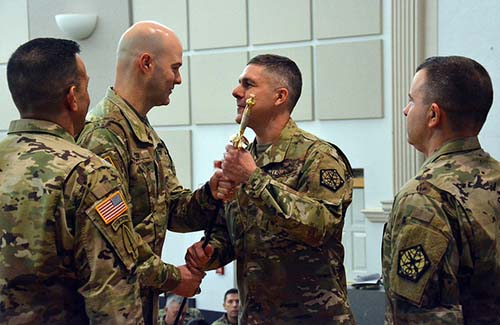7 Air Force Combat Jobs

Introduction to Air Force Combat Jobs

The United States Air Force (USAF) is one of the most powerful and technologically advanced air forces in the world. With a wide range of career fields, the USAF offers numerous opportunities for individuals to serve their country and pursue a rewarding career. For those interested in combat roles, the USAF has several jobs that involve direct participation in combat operations or provide critical support to combat units. In this article, we will explore seven Air Force combat jobs that play a crucial role in the USAF’s mission to defend the nation.
1. Pilot

Pilots are the most visible and well-known combat job in the Air Force. They operate a variety of aircraft, including fighter jets, bombers, and transport planes. Pilots undergo rigorous training to develop the skills and expertise needed to fly complex aircraft and engage enemy forces. There are several types of pilots in the USAF, including: * Fighter pilots, who fly aircraft like the F-15, F-16, and F-22 * Bomber pilots, who fly aircraft like the B-1, B-2, and B-52 * Transport pilots, who fly aircraft like the C-130, C-17, and C-5
2. Combat Systems Officer (CSO)

Combat Systems Officers (CSOs) are responsible for operating the weapons and sensor systems on board USAF aircraft. They work closely with pilots to detect and engage enemy targets, and provide critical support to ground troops. CSOs undergo extensive training to develop the skills and expertise needed to operate complex systems and make quick decisions in high-pressure situations.
3. Airborne Intelligence, Surveillance, and Reconnaissance (ISR) Operator

Airborne ISR operators are responsible for operating the sensors and systems on board USAF aircraft that gather intelligence, surveillance, and reconnaissance data. They work closely with CSOs and pilots to detect and track enemy targets, and provide critical support to ground troops. ISR operators undergo extensive training to develop the skills and expertise needed to operate complex systems and analyze large amounts of data.
4. Security Forces

Security Forces personnel are responsible for providing security and law enforcement support to USAF installations and units. They are trained to respond to a variety of situations, including terrorist attacks, natural disasters, and civil unrest. Security Forces personnel may also be deployed to combat zones to provide security support to USAF units and personnel.
5. Tactical Air Control Party (TACP) Specialist

TACP specialists are responsible for providing air support to ground troops. They work closely with ground commanders to identify and engage enemy targets, and provide critical support to ground operations. TACP specialists undergo extensive training to develop the skills and expertise needed to operate in high-pressure situations and make quick decisions.
6. Explosive Ordnance Disposal (EOD) Specialist

EOD specialists are responsible for disposing of explosive ordnance, including bombs, missiles, and other hazardous materials. They work closely with Security Forces personnel and other units to provide critical support to USAF installations and units. EOD specialists undergo extensive training to develop the skills and expertise needed to handle and dispose of explosive materials.
7. Pararescue Specialist

Pararescue specialists are responsible for recovering and providing medical support to personnel who are isolated or stranded in hostile or hard-to-reach areas. They work closely with other USAF units, including Security Forces and TACP specialists, to provide critical support to ground operations. Pararescue specialists undergo extensive training to develop the skills and expertise needed to operate in high-pressure situations and provide medical support to injured personnel.
💡 Note: These jobs require a high level of physical fitness, mental toughness, and technical expertise. Individuals interested in pursuing a combat job in the USAF should be prepared to undergo rigorous training and make a long-term commitment to serving their country.
In addition to these jobs, the USAF has several other career fields that involve direct participation in combat operations or provide critical support to combat units. Some of these career fields include: * Intelligence, which involves analyzing and interpreting data to support combat operations * Cybersecurity, which involves protecting USAF computer systems and networks from cyber threats * Communications, which involves providing critical communication support to USAF units and personnel
The USAF also has several special operations units, including the 24th Special Tactics Squadron and the 321st Special Tactics Squadron. These units are responsible for conducting a variety of special operations, including counterterrorism, direct action, and special reconnaissance.
The following table provides a summary of the seven Air Force combat jobs discussed in this article:
| Job Title | Description |
|---|---|
| Pilot | Operates aircraft to engage enemy forces or transport personnel and equipment |
| Combat Systems Officer (CSO) | Operates weapons and sensor systems on board USAF aircraft |
| Airborne Intelligence, Surveillance, and Reconnaissance (ISR) Operator | Operates sensors and systems on board USAF aircraft to gather intelligence, surveillance, and reconnaissance data |
| Security Forces | Provides security and law enforcement support to USAF installations and units |
| Tactical Air Control Party (TACP) Specialist | Provides air support to ground troops |
| Explosive Ordnance Disposal (EOD) Specialist | Disposes of explosive ordnance, including bombs, missiles, and other hazardous materials |
| Pararescue Specialist | Recovers and provides medical support to personnel who are isolated or stranded in hostile or hard-to-reach areas |

In summary, the USAF has several combat jobs that play a crucial role in the nation’s defense. These jobs require a high level of physical fitness, mental toughness, and technical expertise, and involve direct participation in combat operations or provide critical support to combat units. Individuals interested in pursuing a combat job in the USAF should be prepared to undergo rigorous training and make a long-term commitment to serving their country.
What are the requirements to become a pilot in the USAF?

+
To become a pilot in the USAF, you must meet certain requirements, including being a U.S. citizen, being between the ages of 17 and 29, and having a bachelor’s degree. You must also pass a physical fitness test and undergo rigorous training to develop the skills and expertise needed to fly complex aircraft.
What is the role of a Combat Systems Officer (CSO) in the USAF?

+
A CSO is responsible for operating the weapons and sensor systems on board USAF aircraft. They work closely with pilots to detect and engage enemy targets, and provide critical support to ground troops.
What are the different types of Security Forces personnel in the USAF?

+
Security Forces personnel in the USAF include security police, who provide security and law enforcement support to USAF installations and units, and dog handlers, who use trained dogs to detect and respond to security threats.
What is the role of a Pararescue Specialist in the USAF?

+
A Pararescue Specialist is responsible for recovering and providing medical support to personnel who are isolated or stranded in hostile or hard-to-reach areas. They work closely with other USAF units, including Security Forces and TACP specialists, to provide critical support to ground operations.
How do I apply for a combat job in the USAF?

+
To apply for a combat job in the USAF, you must meet certain requirements, including being a U.S. citizen, being between the ages of 17 and 29, and having a high school diploma or equivalent. You must also pass a physical fitness test and undergo rigorous training to develop the skills and expertise needed for the job. You can apply online or through a USAF recruiter.



